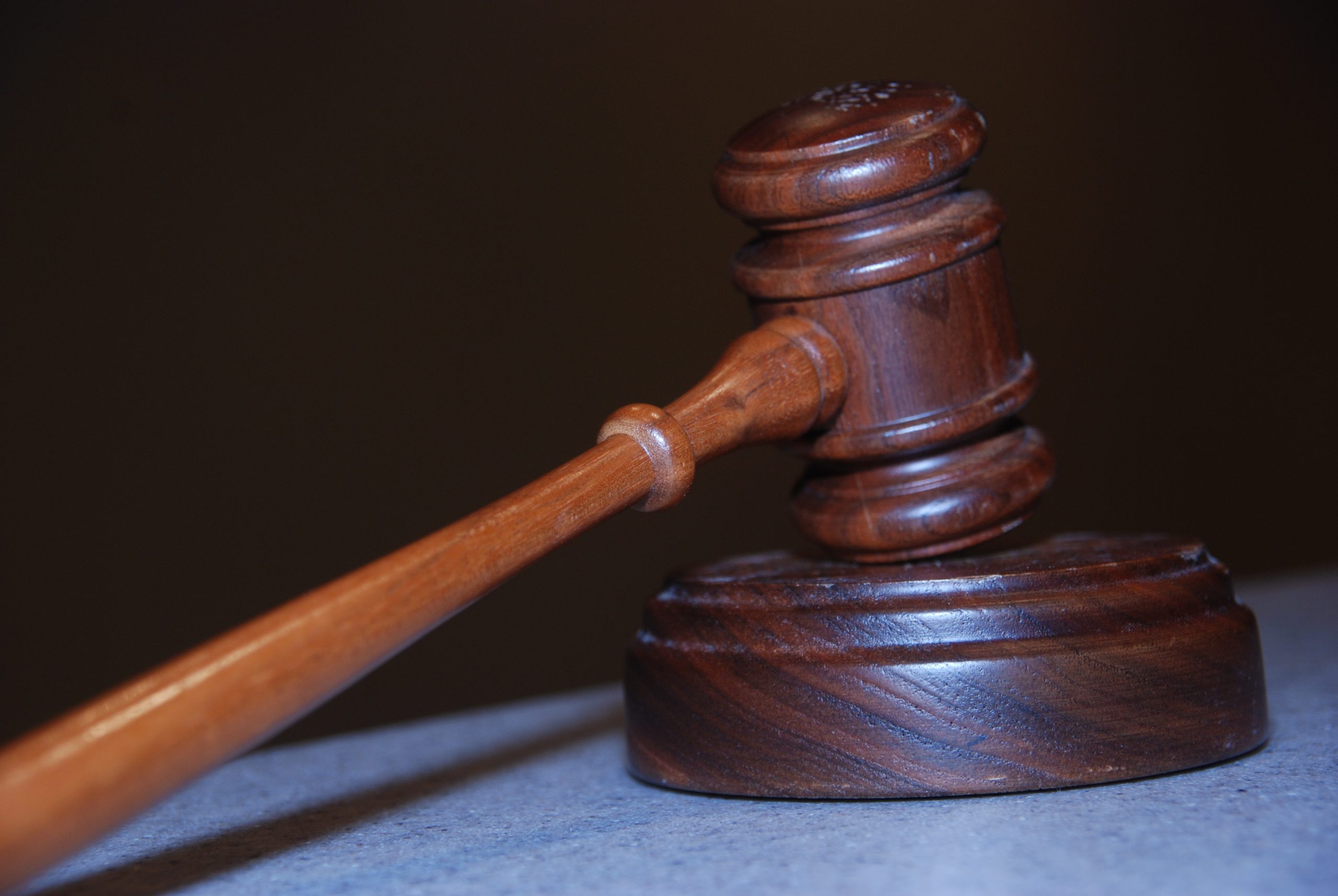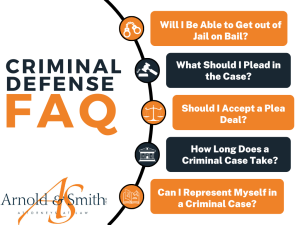Criminal Defense FAQ
If you have been arrested or charged with a crime, you may have questions about what to expect and how you can best prepare for your defense. Generally, criminal charges can be serious, and if you are convicted, you could face severe penalties that might include such things as fines, jail time, community service, probation, and more. A knowledgeable criminal defense attorney will help guide you through the process and assist you in vigorously defending the charges.
Will I Be Able to Get Out of Jail on Bail?
Bail is a payment that you make in order to be free from confinement until the case is resolved. The judge sets bail based on various factors including the severity of the crime and your previous criminal history, among others. You are generally required to pay a portion of bail in order to get out of jail. Once the case is complete and you have returned to court as required, the court will return the money. If you fail to return, it is called bail jumping, and you will not get your money back. You will also face additional charges in that instance.
What Should I Plead in the Case?
During your first appearance in court, the judge will provide you with the exact charges in the case. It is important to note that the charges may differ from the charges on which you were originally arrested. The judge will ask for your plea at this time. You have three options, including guilty, not guilty, and no contest. If you plan to fight the charges, you must plead not guilty, and the case will progress toward a trial stage.
Charlotte Criminal Lawyer Brad Smith answers the question: “Should I ever plead guilty to a charge?
Should I Accept a Plea Deal?
A plea deal or plea bargain is an agreement between the prosecutor and defendant to accept a reduced charge. The agreement typically allows you to plead guilty to a lesser crime and accept those consequences rather than going through a trial. There are both benefits and disadvantages to any plea deal, so you will need to discuss the matter fully with your attorney. It is helpful to note that your attorney is the person who will assist in the deal process to help you get the best options based on the facts of your case.

How Long Does a Criminal Case Take?
You may know that the law requires a prosecution determination as quickly as possible However, the legal matters in a case may take time to resolve. The length of the case will depend on a variety of factors. If there are many details and evidence, the case may take longer. A case that involves more serious charges will likely take longer. Throughout the process, both sides will engage in hearings where they discuss the evidence and other legal matters.
Can I Represent Myself in a Criminal Case?
While the law does not require you to have an attorney, an experienced criminal defense lawyer will be extremely helpful throughout your case. Your lawyer understands the legal process and how to resolve various matters properly. For example, if evidence was obtained illegally, your lawyer will file a motion to have it kept out of the trial. Your attorney also has the ability to discuss the case with the prosecutor and might even be able to get some of the charges reduced or dropped. Even trained lawyers typically hire defense attorneys if they themselves are facing any criminal charges.
Being charged with a crime is a serious problem in your life and one you cannot ignore. Every case is different and has a unique set of circumstances. It is helpful to talk to a skilled criminal defense attorney as soon as possible. If you or a loved one was arrested for a crime, don’t delay. Contact our legal team at Arnold & Smith, PLLC, at (704) 370-2828 for the help you need.
The criminal defense attorneys at Arnold & Smith, PLLC make it their mission to zealously defend their clients on a wide range of criminal matters at both the state and federal levels. These matters may include any charge from traffic offenses; DWI/DUI; drug charges (from simple possession to possession with intent to distribute and trafficking); gun permit denials; weapons offenses; and property crimes (larceny, breaking and entering, robbery, fraud, embezzlement, white collar offenses); to sexually related offenses (indecent exposure; sexual assault, crimes against nature, removal from sex offender registry); and violent crimes (domestic violence; assault; manslaughter; homicide, murder). Other legal issues that Arnold & Smith, PLLC criminal clients may face include restraining orders, restraining order and probation violations, expungements; appeals; and immigration issues related to criminal charges. Our criminal defense attorneys are passionate about ensuring that individuals empower themselves by being informed about their constitutional rights and stand at the ready to fight in defense of those facing criminal charges.
Source:
Plea bargain | Wex | US Law | LII / Legal Information Institute (cornell.edu)
bail | Wex | US Law | LII / Legal Information Institute (cornell.edu)
Image Credit
See Our Related Video from our YouTube channel:
Arnold & Smith, PLLC – YouTube
See Our Related Blog Posts:
What is an Alford Plea in North Carolina?
 Charlotte Criminal Lawyer Blog
Charlotte Criminal Lawyer Blog



